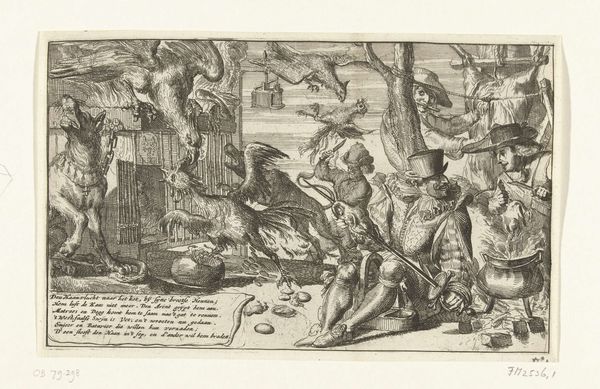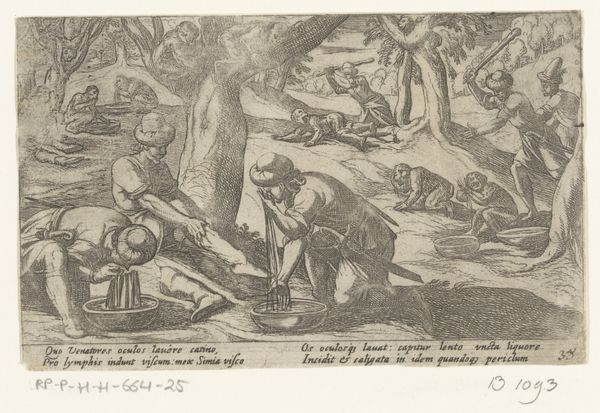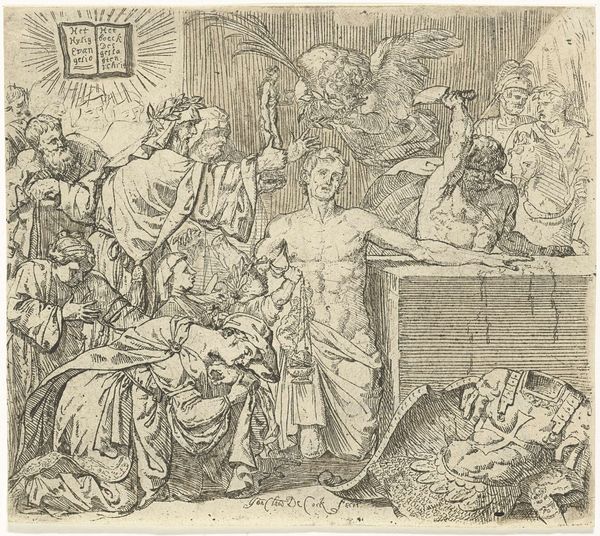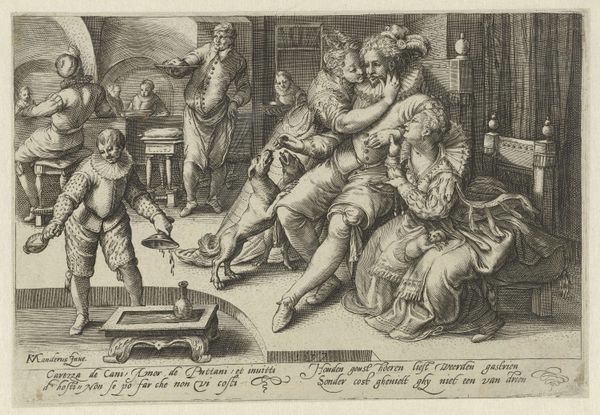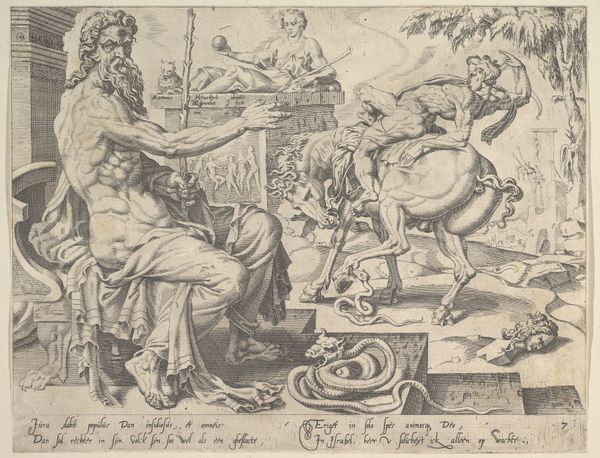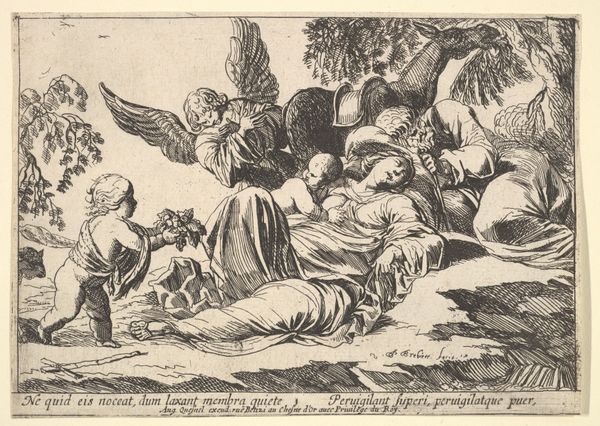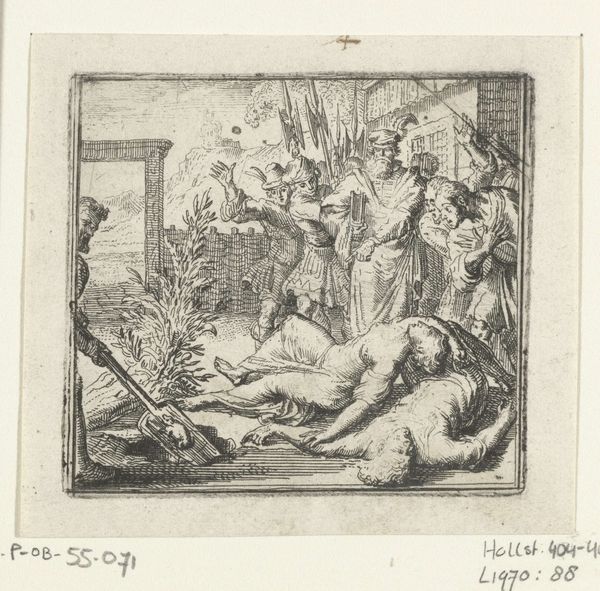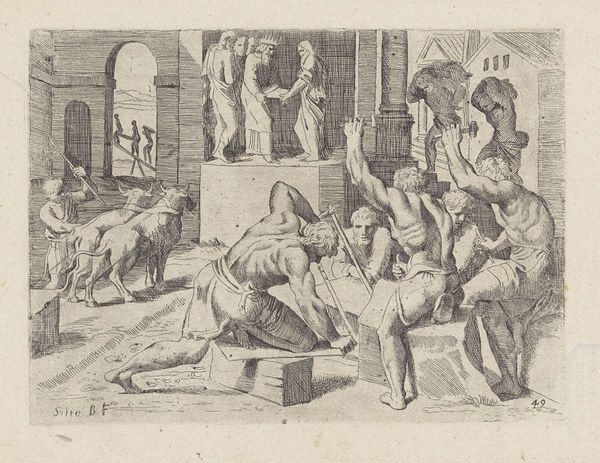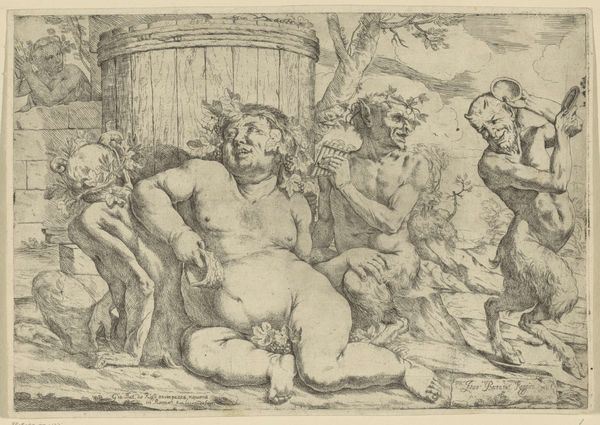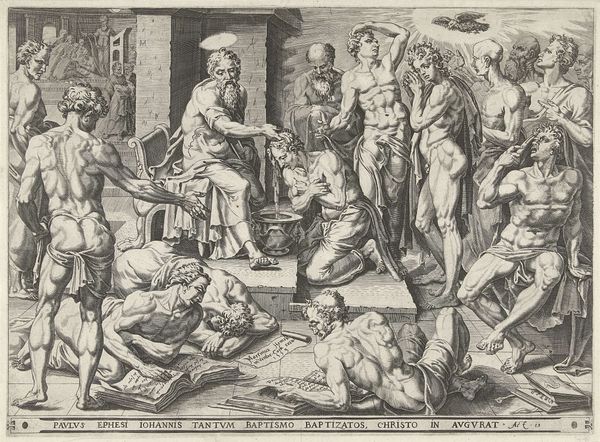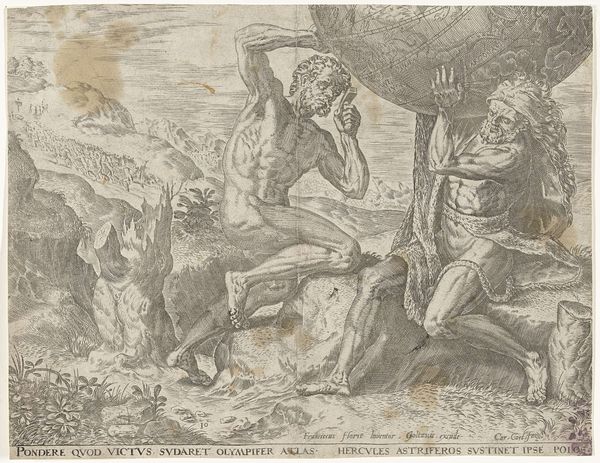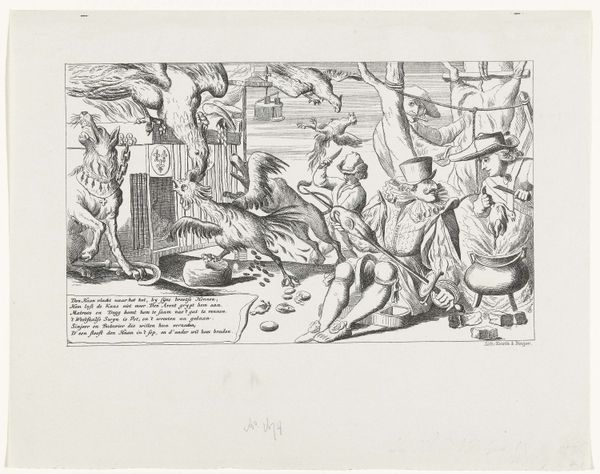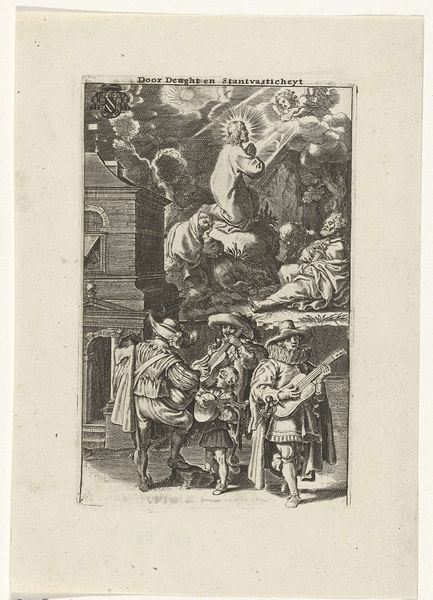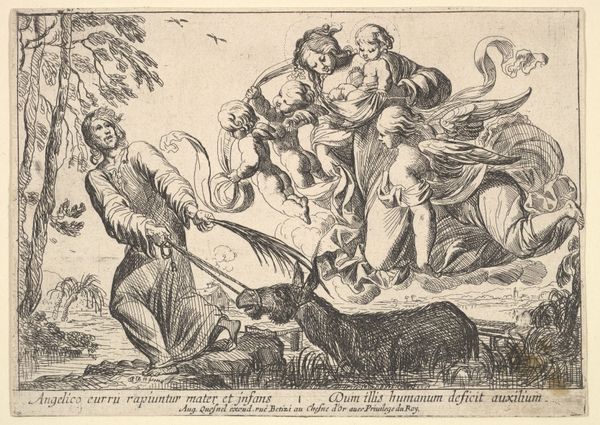
drawing, print, ink, engraving
#
drawing
#
ink drawing
#
pen drawing
# print
#
pen sketch
#
landscape
#
figuration
#
11_renaissance
#
ink
#
history-painting
#
academic-art
#
engraving
Dimensions: width 274 mm, height 210 mm
Copyright: Rijks Museum: Open Domain
Curator: This is "Ruben," an engraving by Dirck Volckertsz Coornhert from 1550. It's currently held at the Rijksmuseum. Editor: It strikes me as a really interesting composition. You have these figures in various states of action, but the style feels very mannered. What's your reading of this work? Curator: Let's observe the formal qualities first. Consider the interplay of light and shadow achieved through the meticulous engraving technique. Notice the emphasis on the idealized, muscular forms, typical of Renaissance art, though verging into Mannerist exaggeration. Editor: I see that. It’s almost like the artist is showing off his skill in rendering anatomy. But what about the composition itself? The figures seem placed somewhat artificially. Curator: Precisely. Observe how the artist employs strong diagonal lines to direct the eye across the scene. The careful arrangement of the figures creates a deliberate sense of balance, despite the dynamism. What effect does this have? Editor: I think it makes the scene feel both active and static simultaneously. Is this emphasis on form a departure from earlier Renaissance art? Curator: Indeed, there's less focus on naturalism, replaced by an almost intellectual appreciation of artistic skill and a rather sophisticated approach to composition and visual tension. The engraving itself acts as a vehicle for displaying artistic mastery. Editor: I hadn't considered the printmaking aspect so closely. I was caught up in trying to decipher a story! Now I appreciate the deliberate artistry. Curator: Sometimes the story is secondary to the execution. Formal analysis reveals so much about the artist's intentions.
Comments
No comments
Be the first to comment and join the conversation on the ultimate creative platform.
